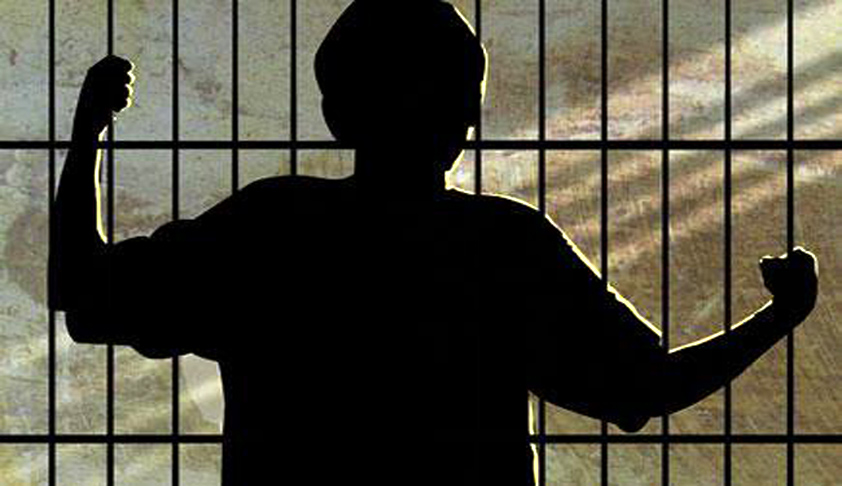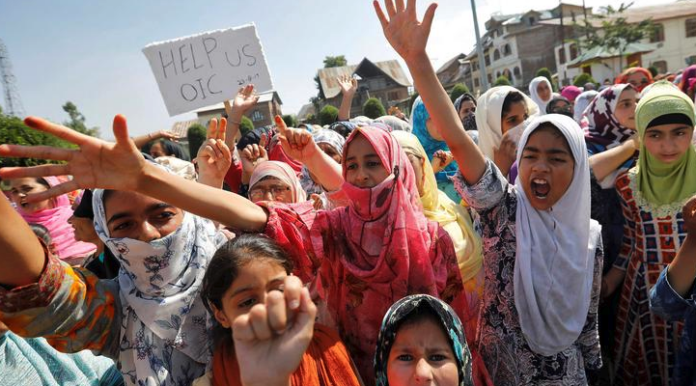Recently, the Supreme Court has been moved by filing a writ petition seeking the release of children in Kashmir who are being detained illegally given the reading down of Article 370 and the bifurcation of the state into two Union Territories, on August 05, 2019. The petitioners have invoked Article 32 of the Constitution by filing the writ petition and exercising their right to constitutional remedy.
Enakshi Ganguly, an eminent child rights expert and Shanta Sinha, the first chairperson of the National Commission for Child Rights (NCPCR) are the petitioners. The petition at the very onset clarifies regarding the locus standi of the petitioners as they are highly experienced individuals and child rights experts, familiar with patterns of violence upon children that emerge in an extraordinary situation.
The basic content of the petition refers to media reports on the matter and has prayed before the court to seek a report and direct the JJ Committee [JJC] of the High Court of Jammu and Kashmir to keep a check on and constant monitor incidents of detention of children.
The petitioners themselves submitted a report while moving the court for judicial review which stated the probable loss of life and liberty of children in the valley, resulting into emotional and intellectual conflict. They called it an ‘extraordinary situation’, citing different reports of abuse and violence against the children, as collected from national and international publications. The petition pleads before the court to make sure that ‘in such a tense situation’ women and children, who are the most vulnerable, are not being subjected to any kind of excesses, whatsoever. Over the past three months, there have been multiple reports which says that teenage boys are suspected of being ‘potential stone-pelters’ and thus picked up.
Such detentions must be reported as well as monitored by the Juvenile Justice Committee at the Jammu & Kashmir High Court’s. Other media reports suggest the illustrations of hurting and injuring the children in the presently ‘urgent and disturbing’ situation of Jammu and Kashmir. They cited that state action and the treatment of children in the valley is in clear violation of specific laws with respect to children, constitutional norms, international obligation related to child rights.

Previous record of detention and excess of children in J & K:
To build upon its argument, the petition also says that the allegations of detention and excesses on children are not being made in a vacuum, despite being unverified in an instant. It relied on a previously published document of the United Nations which records arbitrary detention of children in Kashmir and also of maiming and injuring. Moreover, earlier once in 2008, the United Nations Working Group on Arbitrary Detention (2008) reported that children had been regularly subjected to arbitrary detentions in Kashmir, using the draconian Public Safety Act (PSA).
The petition has fixed the responsibility on the Union government for the safety and protection of the children in Kashmir, after the recently passed Jammu and Kashmir Reorganisation Act, 2019. Therefore, the petition prayed to direct the government to submit a present report of the situation, giving the following details- actual detentions, injuries and deaths of children from August 05, 2019 till date. Moreover, it also goes ahead to pray that the whereabouts of the detained kids be made known to their parents or guardians.
The petition to show the urgency of the matter has also made a remark on the mental wellbeing of the children stationed in the valley, “It is relevant to note that such extraordinary situations have a deep and everlasting impact on the psychological well-being of children and by ignoring the urgency of the situation we may ‘lose’ a generation of citizens to state excesses.”
Results from a previous survey conducted earlier assessing the mental health of some one thousand children had revealed that every third child in the area is clinically diagnosed with a mental disorder. Therefore, praying via the petition for an enquiry by an investigation team appointed by the court to look into the specific cases of children who have been illegally detained, died or maimed. It also prays for payment of direct compensation to the children who have been killed in this period and their families.
Supreme Court directs the JJ Committee to submit report:
Thereafter, in the proceedings on September 20, the apex court directed the Juvenile Justice Committee of the Jammu and Kashmir High Court to carry out an exercise on the claims set out in the writ petition and submit a report within a week. In the report subsequently submitted by the Juvenile Justice Committee, it heavily depended on the report submitted by the Director-General of Police which stated that the JJ committee had obtained data mentioned in the report from various sources- like from the bail applications or habeas corpus petitions from the courts subordinate to the Jammu and Kashmir high court, and the judicial registers of the two wings of the high court.
No ‘judicial review’ or ‘application of mind’:
After the release of the report by the JJ Committee, there has been criticism that there has been no application of mind in the filing of the report on alleged detention. It seems as if no ‘judicial review’ took place. On 14 September 2019 Ganguly submitted a rejoinder before the court stating that the report doesn’t indicate any ‘judicial review’ or ‘application of mind or independent examination/ verification of the allegations’ which were set out in the Writ Petition.

The JJ Committee’s Report has just forwarded the contents and conclusions as met out in the report submitted by the Director-General of Police, without having recorded any findings or observations of its own. Therefore, the petitioners have prayed for further investigation in this matter by the JJ Committee involving all probable stakeholders. It had stated that the delegation of the entire exercise to the DGP was erroneous, especially when the JJ Committee gave no finding of its own. Therefore, the said exercise, where the JJ Committee has abdicated its jurisdiction, couldn’t be seen as in compliance with the mandate given by this Hon’ble Court.
Even the report of the DGP seems to be of less credibility as it has merely quoted that 144 minors were detained in Kashmir after Article 370 abrogation, which was already out by a news report. The report stated that between the ages of 18 years to 23 years, a total of 144 children were detained. However, it goes ahead to state that the children were released from custody on the same day and none of the children was kept or taken into illegal detention by the police authorities as “strict adherence is placed on the provisions of the Juvenile Justice Act”.
Report submitted by the Director-General of Police, simply forwarded by the JJ Committee:
Talking of the report as submitted by the Director-General of Police, it has been stated that it does not deny or ‘categorically refute’ the allegation set out in the writ petition and rhetorically denies them. There have been repeated denials without any substance. The matter was of such nature that it could have been benefitted only from an independent application of mind, which has not been done by the Juvenile Justice Committee.
The purpose of moving the JJ Committee of the High Court was to verify the allegations in an independent manner with respect to excesses against children in their valley. Given the delicate situation in the area, the petitioners believed that ‘the situation merits judicial intervention and supervision’.

